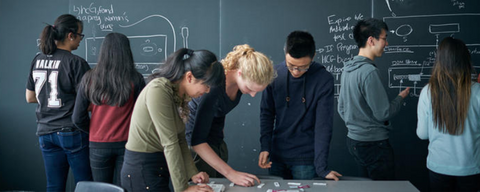
For students in 1A and 1B
Within the Faculty of Engineering, all students in their first year have access to faculty-wide advisors in the Faculty of Engineering's First Year Office.
For students in 2A+
Please email the undergraduate co-ordinator for an appointment. Denise Mueller, E6 3026, Ext. 43273
Drop in appointments are also available Monday to Friday from 9-11:30am and 1:30-4:00pm (E6 3026).
Academic counselling deals with all aspects of your academic career, including
- Year promotion and term decisions
- Study skills
- Options in engineering programs
- Course selection and enrolment - including Complementary Studies Electives (CSEs)
- Taking courses at another university
- Transfers within the Faculty of Engineering or to another program in another faculty or university
- Disciplinary and academic offences (cheating and plagiarism)
- Sickness and medical certificates (missed exams)
- Deferred and supplemental exams